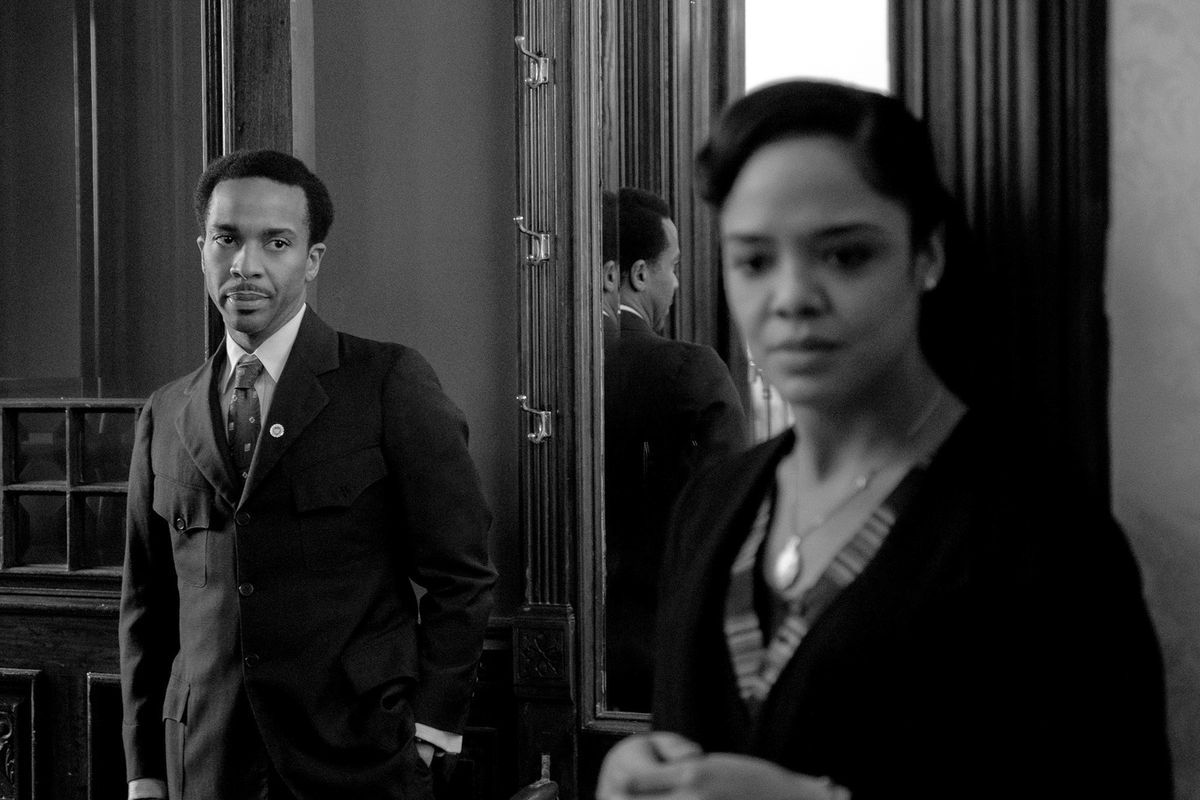‘Passing’ tells stirring if slightly inert tale of racial identity and racism

Actress Rebecca Hall makes a moving, if less than earthshaking, debut as a filmmaker, ably directing and writing the drama “Passing,” based on Nella Larsen’s slender 1929 novel about two mixed-race friends, one of whom (Ruth Negga) is light-skinned enough to “pass” as white – and foolhardy enough to have married a racist pig (Alexander Skarsgard) for his money.
The subject is a charged one, and the story takes place largely in Harlem during the 1920s against a backdrop of ugly, unapologetic prejudice: The film opens with a scene in a downtown shop where the protagonist Irene (Tessa Thompson), hiding her otherwise proud Blackness beneath a low-slung, cloche-style hat, witnesses a casual conversation between two white shoppers about purchasing a “pickaninny” doll.
Yet despite this inherent thematic charge – and the occasional use of the n-word and discussions of lynching – the narrative feels oddly static even at its melodramatic climax. That’s not for lack of trying on Negga’s part. As Clare – an old friend of Irene’s from Chicago who reconnects after the two women run into each other in a restaurant on the one day when Irene has decided to “pass” herself – Negga delivers a vivacious parody of white gentility, hiding under a blond dye job and the accent of a Southern belle.
Her attention-grabbing performance only calls attention to Thompson’s mousiness. When Clare invites Irene to her home to meet her husband, John, Irene is so retiring and afraid of being exposed as Black it’s almost convincing – almost – when John, who boasts of “hating” Black people, doesn’t notice Irene’s darker skin.
Of course, the renewed friendship between these two women is just asking for trouble given John’s attitudes. But that’s only part of this story, which steers a course directly for where you’d think it’s heading even while addressing more intriguing side notions.
These side notions include the grass-is-greener dynamic that develops between Clare and Irene. As the former starts to hang out more in Harlem with Irene and her doctor husband (André Holland), she starts to miss what she calls the “colors” of the culture she’s left behind. Similarly, Irene, though a dedicated volunteer with the Negro Welfare League, begins to envy, if only a little, the advantages that come from being white – or from having people think you are.
Similarly, fissures open up in Irene and Brian’s marriage, mostly centering on petty jealousies over the lively and flirtatious Clare, who’s described by several characters as a kind of “princess.” The film feels like a passion project for Hall, who has a mixed-race background herself, on her mother’s side.
And she clearly has the sensibility to flesh out all the complex story’s subtilties and nuances, shooting in artful black-and-white that paradoxically highlights and erases racial differences, and with a squared-off aspect ratio that underscores the film’s sense of constraint. It’s a constraint that comes from living a lie, as Clare chooses to, and from suffering under systemic bigotry, as Irene must.
But the narrative moves toward its foregone conclusion with the low energy of a slow-moving locomotive on train tracks leading to a broken bridge. Perhaps that’s by design, underscoring what may be Hall’s larger point: that no good can come from hiding who you are – or from a society that gives you the reason to do so.